Inspire Dialogue Summaries: The Environment
Bhaskar Vira, Director, University of Cambridge Conservation Research Institute
“How do we have a dialogue with someone who is fifty years away from inhabiting this earth? This leads to considerations of inter-generational responsibility.”
Our group was looking at the environment. One way of framing our conversation is to go back to an observation that was made earlier by Tawanda Mutasah about the nature of competition, and how the problem of conversing with strangers becomes acute and heightened when we are competing over resources. The matter of the environment illustrates this in a very particular way, and our conversation centred particularly on water, which is becoming a very central issue in the here and now. How do you find ways when resources are scarce, to share in a manner which is equitable and fair, and leaves enough for future generations? How can we arrive at negotiated outcomes that are perceived to be fair to the present and fair to the future – fair both to those who have and fair to those who don’t have? This is a very profound challenge: who do we talk to and how do we arrive at that negotiated outcome?
We ranged widely in our discussions. We talked about the constraints around contemporary capitalism and contemporary politics, and how systemic problems constrain the opportunities of individuals and the decisions they can make.
In some ways these things force an individual to make choices which work against the interests of the collective, the environment and protection into the future. There are also issues about technology and the choices that people make about that. The groups were interesting because of their particular constitution. In one of them we had a number of people who came from a language or linguistic background, which led to discussion about the importance of language, and how we frame the narrative: how can we appropriate it in ways that help to make the conversation more productive? Another group had a number of people from the creative fields, which led to discussions about how we can harness the power of arts in order to frame these conversations. In short, what came up was the potential to use dialogue in creative ways. And, of course, the matter of education ran through every discussion.
What makes the environmental issue interesting is also the need for inter-generational dialogue. The ‘strangers’ we are talking about here are not yet born, therefore we have to think about who speaks for the children of the future, because the decisions we make today are going to have a direct effect upon their world. How do we have a dialogue with someone who is fifty years away from inhabiting this earth? This leads to considerations of inter-generational responsibility. People tend to see their responsibility for at least the current generation: for example, we had someone teaching at a primary school, and they pointed out that when you are teaching children up to the age of eleven, you are already talking about the next generation. Some of us are parents, of course, so inter-generational responsibility spreads naturally through our discussions. But we also need to think about the long-term future.
There are a few things I want to bring to the collective discussion. The first is the issue of making informed choices. We constantly make choices about environmental issues, but they are often not made on sound information so that we understand the implications of our choice. Someone from one of our groups pointed out the ‘embodied’ water in one McDonald’s big mac is the equivalent of twenty showers, because the water that is used to feed the cattle which then goes to making that burger is the amount you would use in your showers over twenty days. I did not know this, and when I’ve had a big mac at McDonald’s I’ve not been thinking that I’m consuming water. So how do we get this information out, so that the decisions that we make – the small incremental changes that add up to big change – are informed by knowledge of their impact? How do we obtain this information? How do we harness the narrative, and use the channels that everyone is already using, such as Twitter? Can we harness the power of advertising in ways which actually make the positive message appear, so that people’s choices are fully informed?
Secondly, there is a question concerning responsibility. One interesting element of the climate change treaty in the context of universal responsibility is that it uses the term “common but differentiated responsibility”. The idea of universality is that everyone has responsibility; the idea of “common but differentiated responsibility” is that, whilst everyone has responsibility, the extent of it reflects their ability, their resources and their historical responsibility. So the developed countries might have to take more responsibility because of the implications of their consumption choices in the past. But generally, the interesting aspect is the combination of the notion of ‘universality’ with the notion of ‘differentiation’.
Finally: an observation about how, even in situations of conflict, dialogue can happen. Coming back to the issue of water, a good illustration is that even now in the Middle-East Israel, Palestine and Jordan are talking about water resources, despite the fact that they find it very difficult to agree about anything else. It is the same with India and Pakistan, where there is something called the Indus Water Treaty which was negotiated in the 1960s. It is a negotiated settlement for the sharing of the resources of the Indus River, which is a hugely important matter for both sides. Even when they have fought wars against each other, they have maintained this treaty – and it has never broken down. This raises an interesting question, I think, about dialogue and conflict.
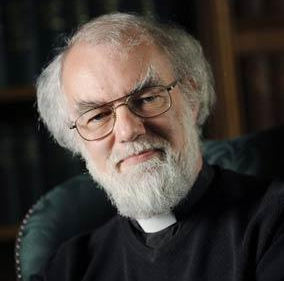
Inspire Dialogue Introductions: Lord Rowan Williams
Master of Magdalene College, Cambridge
“When we go out and encounter others, we are asking for something that is not already there to come alive in us.”
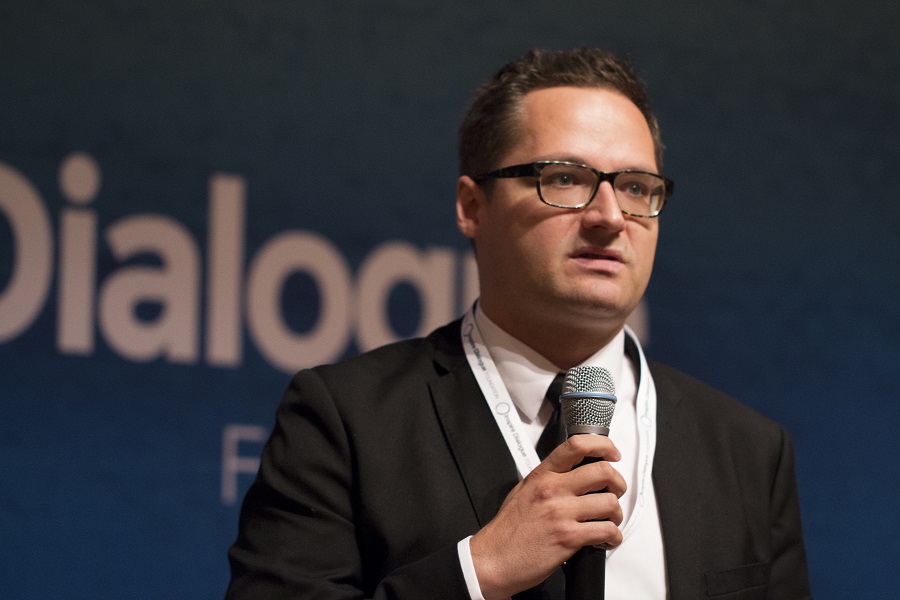
Inspire Dialogue Introductions: Frederick Smets
United Nations High Commission for Refugees (UNHCR)
“Most of these people do not need money, but they need somebody that they can have a conversation with.”
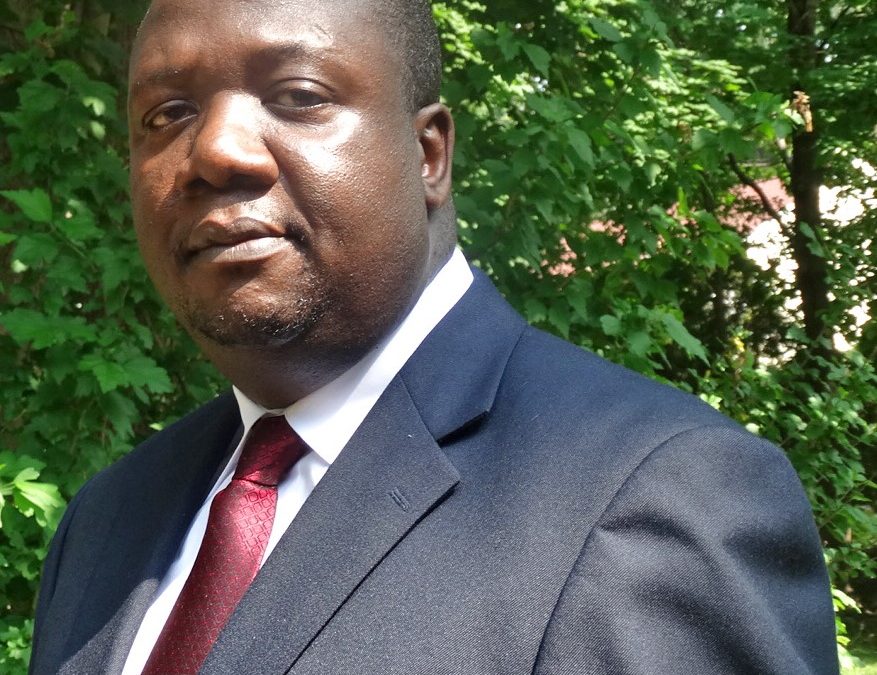
Inspire Dialogue Introductions: Tawanda Mutasah
Senior Director of Law and Policy for Amnesty International
“The stranger or ‘the other’ is a notion that we construct in our quest for a resource. In reality, there is no ‘other’…”

Inspire Dialogue Introductions: Baraa Halabieh
English-Arabic translator
“What makes humanity so beautiful is our multiculturalism… the variety in our colours, cultures and beliefs is what makes us all unique.”
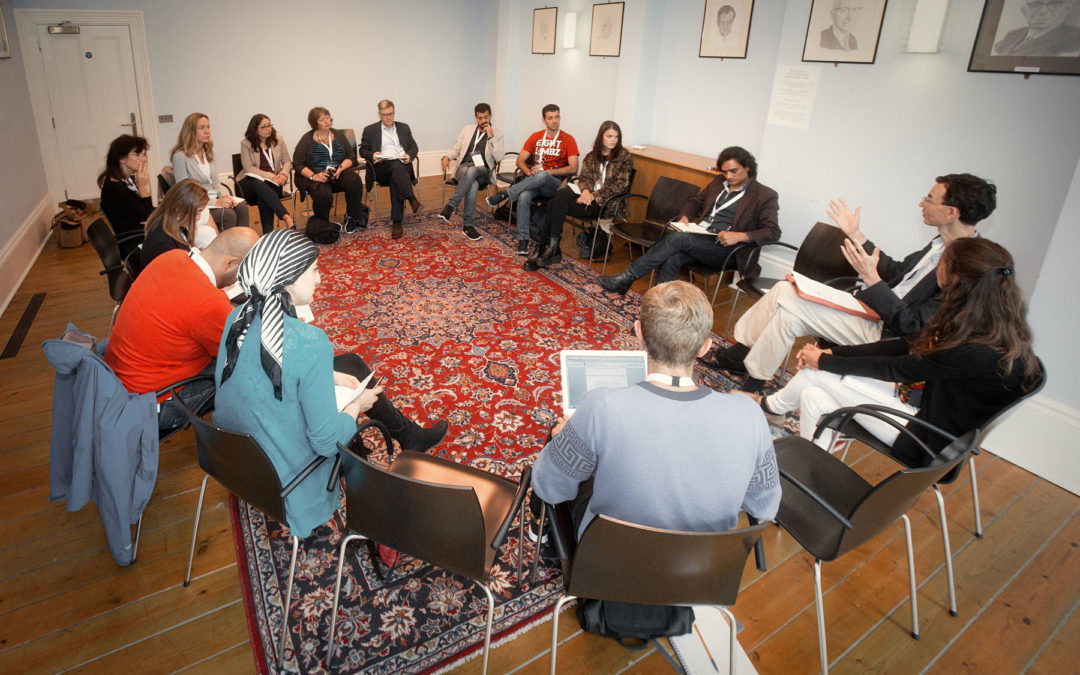
Inspire Dialogue Summaries: Conflict Resolution
Brendan Simms and Alison Liebling
“We were criticised and ridiculed by other professional groups for coming into a maximum security prison with the word ‘trust’ in mind.”
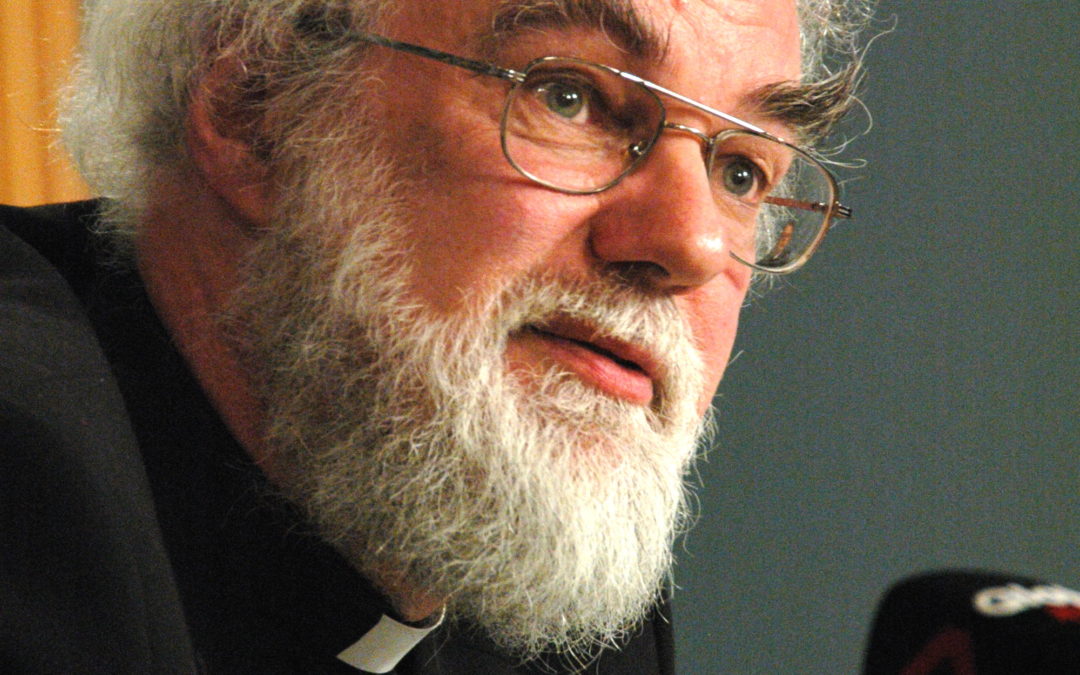
Inspire Dialogue: Final Summary
Lord Rowan Williams
“To be able to imagine that things don’t have to be as they are is perhaps one of the most important things that human beings ever do.”
MORE IN BESHARA MAGAZINE:
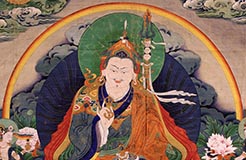
Unlocking the Heritage of Tibet
Dylan Esler talks about the ancient contemplative tradition of Dzogchen Buddhism – the ‘effortless path’ – and the 84000 Project, which is preserving the precious heritage of Tibetan Buddhism
‘Once we learn to dissolve that sense of having to react to whatever occurs, then we open up to a more spacious perspective, and that is the perspective of non-duality.’
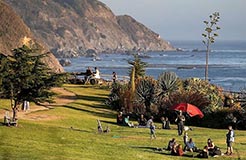
The Vision of Esalen
Michael Murphy, co-founder of the Esalen Institute in California, reflects on the contribution of an institution that has revolutionised our understanding of spirituality
‘We’re all, whether we know it or not, together involved in a cosmic jailbreak, breaking out of our golden chains.’
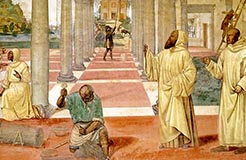
Transmission Across Cultures
Writer and art historian Diana Darke brings to light the largely unacknowledged influence of Islamic architecture and craftsmen on the iconic buildings of Europe
‘If you are building a prestige project, of course you’re going to go for the best, wherever it comes from.’
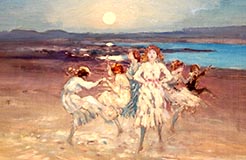
George William Russell: A Forgotten Irish Mystic
Gabriel Rosenstock gives a poetic response to twelve visionary paintings by the ‘myriad-minded’ writer and polymath
‘[Through his works] we may see the world once more in its primal beauty, may recover a sense of the long-forgotten but inextinguishable grandeur of the soul’
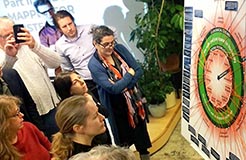
Rolling Out the Doughnut
Leonora Grcheva of DEAL talks about how Kate Raworth’s innovative economic theory is being translated into sustainable practice in cities across the world
‘The Doughnut gives us a new way to conceptualise who we are, how we position ourselves as part of the living world, and how we can reimagine our future’
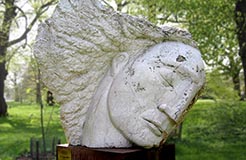
Emily Young: Giving Voice to the Earth
The distinguished sculptor Emily Young talks about her work and the stories that stone can tell us
‘What does it look like when a human is at one with the universe? Embracing it all…’
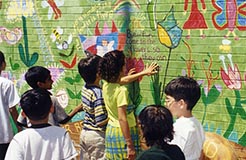
Richard Lewis: Pilgrim in the Land of Children
Robert Hirshfield appreciates the work of a teacher who has devoted his life to inspiring children to write imaginative poetry
‘A child is the privacy of a universe learning to talk to itself.’

The Power of Gold
Alan Ereira talks about his new book, which traces the relationship between human beings and this most precious metal over a period of 7,000 years
‘The notion that gold contains immutable value is somehow enormously powerful. Of course, gold doesn’t actually have that value in itself; we attribute that to it without thinking, unconsciously.’
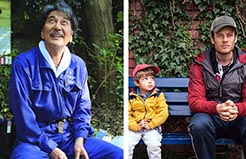
Introducing… ‘Perfect Days’ and ‘Nowhere Special’
Jane Clark watches two films with a contemplative theme

The Philosophy of Prayer
Distinguished theologian George Pattison talks about the meaning of prayer in the modern world and how it brings us to awareness of our essential nothingness
‘Our starting point always has to be that we are not makers of our own being, but we are before we start doing anything for ourselves.’
